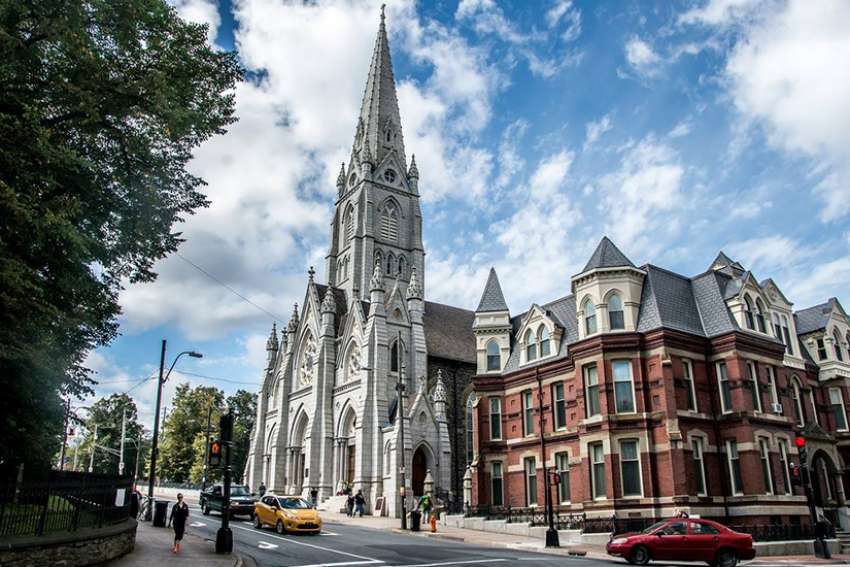The largest of Nova Scotia’s two dioceses laid out a plan in October intended to make it more missionary by realigning from 65 parishes and two missions to 18 canonical parishes and St. Mary’s Basilica Cathedral in downtown Halifax.
“New parishes will benefit from a greater number of people to draw on, improved and transparent leadership structures, and shared ministry and mission,” the diocesan website explains.
The plan, to be implemented by January 2020, envisions parishes that have a minimum of 500 weekly attendees at multiple locations. Parishes will be served by at least two priests who will work with other ordained and lay leaders. Mission and community are seen as essential components of the restructuring.
“The pilgrim Church is missionary by her very nature,” the plan reads. “That mission is expressed through parishes and a diocesan plan means reaching out to and inviting those from outside the Church and a caring for the most vulnerable in the local area. The Christian, community life should shine out to others as a contrast to the growing isolation, political polarization and loneliness commonplace in modern society.”
To make this work, clergy and laity will be encouraged “to develop the necessary skills, competencies and attitudes,” the diocese says. That will entail “a conversion of thinking” to encourage “co-responsibility” in managing each parish. “Recent events have demonstrated that clericalism... can inhibit the healthy functioning of the Church,” says the plan.
Parish leadership teams will comprise a priest-moderator, who directs the joint ministry, other priests who will be given specific duties, and deacons from the parish community. A team of three to five key people, lay and ordained, will assist the moderator in making important decisions. A pastoral council and financial council will craft a parish vision and gather and disperse its resources.
Restructuring parishes has become a constant process in the Catholic Church. Fewer people attend services and that means dwindling finances.
On a personal level, we have been part of St. Bernard’s Parish for more than 25 years and have seen the numbers continually drop off. When the restructuring is complete, St. Bernard’s and Holy Cross mission church will form one parish with St. Rose of Lima, about 20 km to the south, and St. Kateri, another 25 km to the north.
Fr. James Mallon is no stranger to the idea of evangelization. He founded the Divine Renovation ministry, a network that has caught on across the globe to help inspire, equip and coach parishes to make the transition from maintenance to mission. Now dedicating half his ministerial work to helping the archdiocese restructure, Mallon said the plan seems more daunting than it really is.
“It doesn’t necessarily mean that you’re going to go from 65 buildings down to 19,” he told a newspaper last month. He said parish teams will determine whether buildings will close. Some will likely remain open but used less frequently.
“Jesus didn’t tell us to go out and build buildings, He didn’t say go out and hold church services,” said Mallon, who feels the Church has “forgotten the core purpose.”
He said society has changed drastically in the last half century and, if you build a church, it’s no longer a given people will come.
“How do you move from church being a place where you go for one hour a week to a community of family and friends who love and support and help them to grow spiritually and humanly?” Mallon asked. “When you begin to experience that in a parish church, it really is a game-changer. It makes it very much alive and relevant.”
That’s the transformation the archdiocese wants to achieve. It won’t be seamless but doing something is better than doing nothing, and a mission of evangelization trumps futile efforts to maintain a floundering church.
(Campbell is a reporter at the Halifax-Chronicle Herald.)


